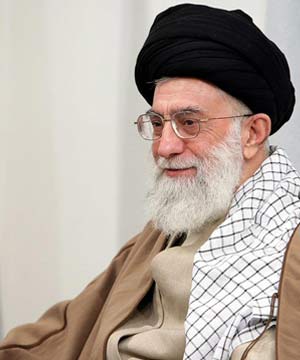The Pentagon views the weak, militarily surrounded and impoverished country of Iran as the greatest threat America faces, according to one of the US’s top military officials.
 Adm. James Winnefeld, vice chairman of the Joint Chiefs of Staff told a Washington think-tank on Tuesday that he doesn’t “see any greater challenge than Iran.”
Adm. James Winnefeld, vice chairman of the Joint Chiefs of Staff told a Washington think-tank on Tuesday that he doesn’t “see any greater challenge than Iran.”
Of all the general national security threats America faces, Winnefeld said, including economic threats, terrorist threats, and the threat of a potential offensive military strike on the US, “you find Iran touches (them) one way or the other.”
Part of the reason this answer comes so easily to the political and military establishment is because of the mantra about Iran trying to develop nuclear weapons. But there is a consensus in the intelligence community that Iran has no such weapons program.
The US is not so concerned with Iranian military capabilities per se. Iran is one of the few states in the geo-strategically vital Persian Gulf area that isn’t a client of the US, doing the bidding of Washington power-brokers in exchange for economic, military, and diplomatic support. This disobedience is the real threat to an America that wants complete control over the Middle East.
“It is a matter of faith among many American politicians that Iran is the greatest danger now facing the country,” writes Micah Zenko, a fellow at the Council on Foreign Relations. “But if that is true, then the United States can breathe easy: Iran is a weak military power.”
According to the International Institute for Strategic Studies, Iran’s“military forces have almost no modern armor, artillery, aircraft or major combat ships, and UN sanctions will likely obstruct the purchase of high-technology weapons for the foreseeable future.”
Even if Iran did have nuclear weapons, which it doesn’t, “the threat to the US homeland would continue to be minimal,” according to Zenko.
But the military establishment continues to habitually hype threats that don’t exist, because it fills the pockets of rent-seekers in the military industrial complex and it serves the bureaucratic interests of powerful hawks in Washington.


